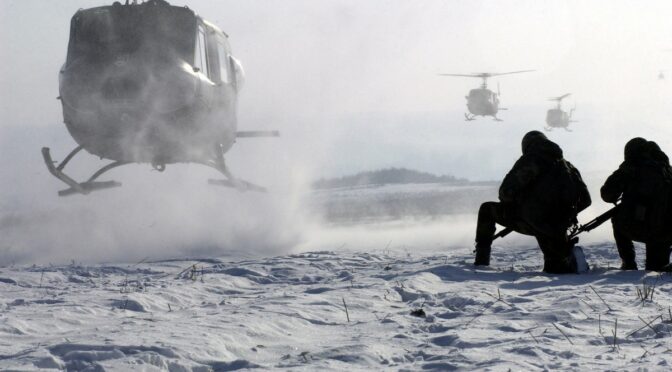Article published in The Daily Telegraph, 22 November 2022. © Richard Kemp
The Russians have long considered ‘General Winter’ to be their trusted ally. Hitler found this to his cost when he invaded the USSR in 1941, having failed to learn from Napoleon’s retreat across the snow-covered steppe in 1812. But in both of these campaigns winter was just one factor. Those who think freezing temperatures in Ukraine will favour Russia now are fundamentally wrong.
For one thing, the Ukrainians are not Germans or Frenchmen. Like the Russians, they are accustomed to snow, ice and plunging temperatures. They know how to live and survive in it, as did the Finns when Stalin invaded in 1939 and was bested by a much smaller army in a freezing war for its territory.
Those who have fought in sub-zero conditions know that winter warfare is as much about fighting off the cold as it is about dodging shells and bullets. Even though both sides in this war are acclimatised, the cold weather will hit them hard as frostbite threatens to cripple and kill. Shivering in a frozen dug-out or abandoned farmhouse with no prospect of respite from the weather can penetrate even the toughest soldier’s mind, and make him turn in on himself. It is then that hypothermia strikes, sometimes fatally.
In such conditions training is all-important, with soldiers taught to look out for each other to spot early signs of deterioration. The Ukrainian troops are better trained and more disciplined than the Russian invaders and therefore better able to cope.
Cold weather clothing keeps soldiers alive and fighting in winter conditions. Ukraine’s men are mostly well-equipped, often with supplies sent in by its allies. The Russians are less so, with reports of newly mobilised soldiers having to find their own coats, hats and sleeping bags to make up for stocks that have disappeared into the black market to line the pockets of their quartermasters.
In all wars and in all seasons, morale is the most important factor in battle, and never more so than in winter. Here the Ukrainians will have the upper hand. Russian soldiers have been sent to fight in a foreign land, many with no idea why and some bitterly resenting it. Ukrainians, on the other hand, are fighting for their lives, their families and their homeland. They have suffered badly in the fighting so far but their morale has been lifted by months of success. It is the will to fight with every sinew, even in such terrible conditions, that makes the difference between holding out or surrendering, or even just running away.
Putin’s generals pulled back from Kherson this month because they couldn’t keep their forces adequately supplied. Herein lies another critical difference between now and the wars when ‘General Winter’ came to Russia’s aid: this is a Russian offensive, not defensive, operation. Ukrainian targeting of Russian supply lines throughout has paid off, and will yield even greater dividends this winter as logistics become even more strained, with equipment failing and higher demand for fuel and food.
This is, however, far from a one-sided challenge. The intensified Russian missile strikes on Ukrainian energy infrastructure in recent weeks have also disrupted military logistics including hampering movement of combat supplies, troops and armoured vehicles. Meanwhile, supply chains will be under greater pressure on both sides as the armies fight the winter war while at the same time concentrating stocks and forces for renewed large-scale fighting when the weather eases.
Russia needs a pause in the fighting to train, equip and push troops forward to the battle zone. Ukraine, too, needs time to reinvigorate and re-supply an army that, despite its successes, has been badly mauled in nine months of fighting. We should remember that Putin hoped to exploit winter to undermine European support for his enemy, cutting energy supplies to push up prices and force a shivering population to pressure politicians to abandon Ukraine.
The situation looks less dire than just a few months ago with the market adapting, gas reserves built up and prices now lower. Nevertheless, war weariness in the West remains a concern that our leaders must work to overcome as Ukraine enters what President Zelensky has predicted will be the ‘worst winter’ in its history as an independent nation.

